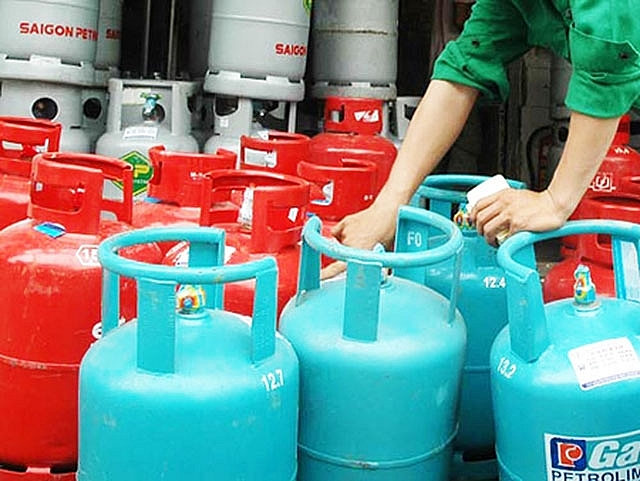LPG suppliers in dramatic flight from Vietnam
 |
| LPG suppliers cannot stave off counterfeit products and illegal gas exploiters |
Since 2012, an increasing number of foreign and domestic suppliers have been sizing down or pulling out of the Vietnamese LPG segment, including Shell Gas, Mobil Unique Gas, BP Gas, Total Gas, and Thang Long Gas.
The reason of leaving was consistently a business strategy of focusing on larger-scale markets. As Shell Gas Vietnam said when selling all of its holding to Siam Gas in 2012, “This transfer is a part of Shell’s business strategy which concentrates on fewer key markets with larger scales.”
However, the main drive is believed to be trade violations, such as overwhelming illegal gas extraction, poaching gas bottles, and selling low-quality gas by private gas dealers. Notably, the number of illegally-traded LPG canisters accounts for some 40 per cent of the gas market. Genuine gas traders have been at their wit’s end to fight and compete against trade fraud.
According to the Vietnam Gas Association, LPG enterprises need to invest millions of dollars in gas canisters, brand registration, periodic quality inspections and maintenance, as well as take responsibility for the safety of their products. Meanwhile, illegal gas dealers earn with far lower investment costs and responsibilities.
The Vietnam Gas Association’s vice president cum general secretary Tran Trong Huu said at the recent workshop on challenges and prospects of LPG market that the most pressing issues are illegal gas extraction and the appropriation of canisters. More importantly, some dealers even switch the logos or change the structure of the containers – some are even selling fake LPG cylinders.
Such practices lead to unhealthy competition, affecting the benefits of authentic gas traders and consumers as well as the state budget (since the independent dealers do not pay tax).
The authority has put significant efforts into investigating and handling violations. As a result, the LPG market is reported to have been brought under partial control. However, according to Huu, it has been 10 years since the implementation of the regulations, and the results shows that there are still a lack of thorough and comprehensive action which limits the effectiveness of the laws administrating the LPG market.
Specifically, there are variations in each city and province when dealing with violations, with some applying penalties, while others issue administrative fines.
Huu proposed that competent bodies should provide authorities with adequate instructions so that they can fully understand and synchronously carry out the measures, creating a breakthrough in the fight against fraud and imitation, as well as violations against equity ownership and intellectual property in LPG trading.
In addition, he also suggested the government to build a joint circular on the prosecution of LPG trading violations.
Gas enterprises should protect their own rights by registering intellectual property rights, as well as using security seals and anti-counterfeiting stamps.
To control violations, Alttek Global JSC’s director of business development recommended applying smart traceability tools to monitor the products from importing to retailing and consumption, helping consumers easily check the authenticity of the LPG products.
What the stars mean:
★ Poor ★ ★ Promising ★★★ Good ★★★★ Very good ★★★★★ Exceptional
Related Contents
Latest News
More News
- SK Innovation-led consortium wins $2.3 billion LNG project in Nghe An (February 25, 2026 | 07:56)
- THACO opens $70 million manufacturing complex in Danang (February 25, 2026 | 07:54)
- Phu Quoc International Airport expansion approved to meet rising demand (February 24, 2026 | 10:00)
- Bac Giang International Logistics Centre faces land clearance barrier (February 24, 2026 | 08:00)
- Bright prospects abound in European investment (February 19, 2026 | 20:27)
- Internal strengths attest to commitment to progress (February 19, 2026 | 20:13)
- Vietnam, New Zealand seek level-up in ties (February 19, 2026 | 18:06)
- Untapped potential in relations with Indonesia (February 19, 2026 | 17:56)
- German strengths match Vietnamese aspirations (February 19, 2026 | 17:40)
- Kim Long Motor and AOJ Suzhou enter strategic partnership (February 16, 2026 | 13:27)

 Tag:
Tag:


























 Mobile Version
Mobile Version